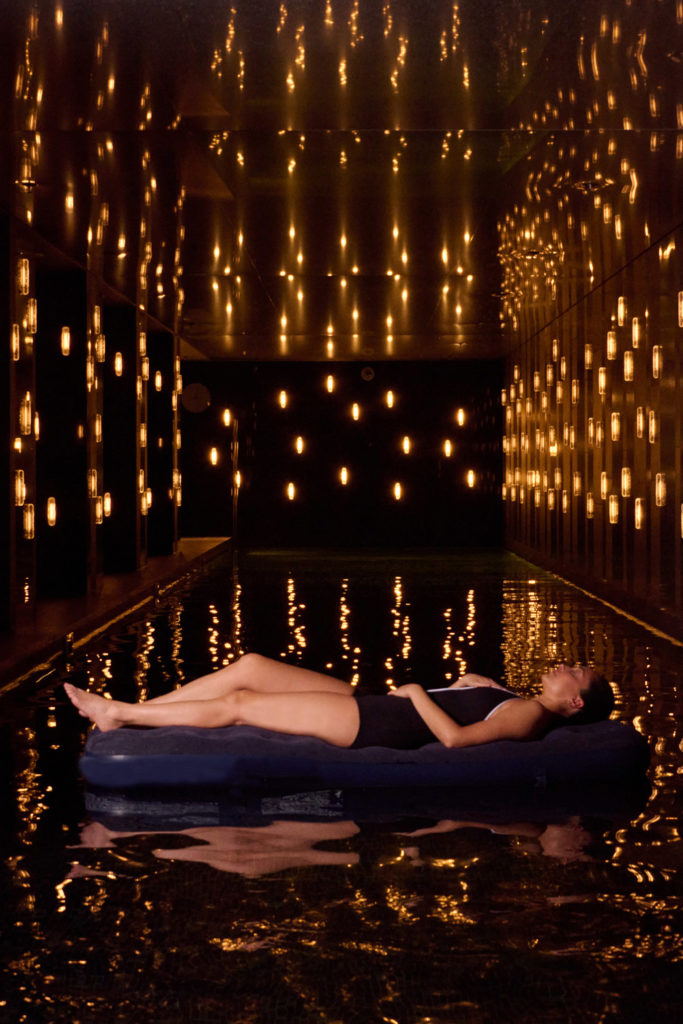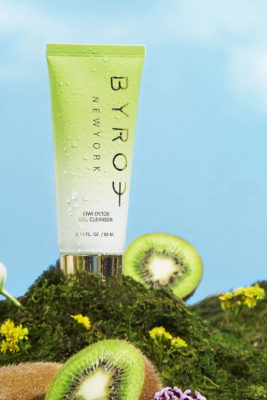
The Hard Cell: The Truth About Skin Longevity
By
5 months ago
What you need to know about the beauty world's biggest buzzword
The secret to healthier skin? Working with its natural ageing process. Olivia de Courcy gets smart about cell senescence and skin longevity.
The Truth Behind Skin Longevity
Over the past few years, longevity has become the beauty buzzword. It’s a concept based on the simple principle: prevention is better than cure. And something that was once an in-clinic principle with its advanced devices and injectables to prevent the onset of core factors of ageing such as fine lines, skin laxity and pigmentation, has now extended onto our bathroom shelves.
The industry is embracing this evolution, with scientists redefining the foundations of skincare longevity. ‘What excites me most about longevity science in skincare is how we’re expanding the conversation beyond just correcting signs of aging to proactively supporting the skin’s long-term health and function,’ shares Dr Annie Black, international scientific director at Lancôme. ‘Skincare is becoming more adaptive, and more rooted in the biology of how skin ages, not just how it looks.’
For some, this is a complete reversal of long-held beliefs about how skin should be treated, as Joanna Ellner, ex-journalist and founder of skincare brand Reome, notes: ‘As a former beauty director, I wrote often about the perceived need to voraciously encourage cell turnover – the eternal pursuit of fresh, new baby cells to do away with the old, and ergo, look 10 years younger. Now, based on the growing body of research, I think completely contrary to that. Our cells – the ones we have now – should be protected, nourished, and preserved, slowing down the need for accelerated turnover, and in doing so, we extend the life and youthfulness of skin, right where it is.’
The problem that the longevity movement has emerged to solve, is that ‘our life span is continuously increasing, but our health span remains stagnant,’ says Professor Jacques Proust, medical director of Nescens Preventive Medicine Centre. He notes there are 15 factors of biological ageing, and one of the biggest culprits of premature ageing is skin senescence. ‘Senescence occurs when cells stop naturally dividing and become stagnant. Instead of dying, they start secreting inflammatory markers,’ says Proust. ‘They are known as “zombie cells” because they contaminate those around them.’ It’s not something that can necessarily be prevented; senescence is a natural part of ageing, but it can be delayed, and there are a host of buzzy ingredients that can help reduce the inflammation and contamination of neighbouring, healthy cells.
An area of the world notorious for long, healthy lifespans is the Japanese island of Okinawa, known as ‘The Blue Zone’. Tatcha’s brand philosophy is based on the island’s lifestyle, including nuchigusui, Japan’s nutrient-rich diet. The Longevity Serum, formulated with Okinawa Cellescence Complex, ‘blends three potent extracts – shikuwasa lime, noni juice, and shell ginger, all popular in the Okinawa diet – to both increase cellular resilience against stress-damage to prevent the start of cellular senescence, and prevent the spread to surrounding healthy cells,’ shares Qiang Qiu, Tatcha’s head of global innovation.
What does the result of senescence on our skin actually look like? ‘Cellular senescence can begin as early as our 20s,’ says Qiu. ‘It contributes to visible concerns like dullness, rough texture, loss of firmness, and chronic inflammation, or what we call “inflammaging”.’ Using targeted ingredients, like the Okinawa Cellescence Complex, ‘reduces the build-up of zombie cells and defends the skin against future stress, helping to strengthen the barrier, restore radiance, and keep your skin feeling stronger for longer,’ says Qiu.
Elsewhere in the plant world, the humble rose is proving a hit with scientists for its effect on reducing the effects of senescence. In Reome’s first moisturiser, Biogenic Melting Cream, bio-rosea stem cell (extracted from a biotech-formed rose petal) speeds up the death of senescent cells so the body can eliminate them. It works in partnership with Telessence M3, a powerful botanical compound to delay the onset of senescence in the first place. ‘It’s a skin-longevity changer,’ says Ellner.
At Lancôme, its newest scientific breakthrough, Absolute PRDN – present in Absolue Longevity The Soft Cream – is extracted from a white rose grown in Korea. You may have heard of PDRN: Polydeoxyribonucleotide (also called polynucleotide), derived from salmon sperm. But at Lancôme, Dr Black explains that a new PDRN is ‘derived from trillions of rose DNA fragments, helping boost cellular metabolism and extending vitality,’ in exactly the same way salmon PDRN does.
Ingredients-of-the-moment – peptides – are key in boosting skin longevity, acting as messengers that signal to skin cells to boost collagen, repair damage and enhance hydration. Copper peptides are known to chivvy cells to create more collagen and elastin – two vital building blocks of healthy, plump skin. Swiss longevity brand Loya’s transdermal delivery system ensures the copper peptides (and complementary ingredients) penetrate deep into the skin’s multiple layers. In its Supereverse Serum, copper peptides are joined by super peptide argireline, often called the botox of the skincare world, as it inhibits muscle movements (in a less extreme way than an injectable), preventing the formation of lines such as the elevens between the eyebrows. Loya clinical trials show argireline can reduce wrinkle volume by 20 percent in one week.
Many experts advocate for a good night’s sleep in the quest for better overall health, and the same goes for skin. Skin goes into hyper-regeneration mode as we doze, and Noble Panacea has tapped into our skin’s natural cycle of detoxing, repairing and hydrating, with a new timed release, peptide-rich innovation: The Absolute Peptide8 Night Serum. The first phase releases althea rosea petal stem cells, a lab-grown biotech ingredient that targets and reduces existing senescent cells, and hexapeptide-11, delaying the onset of senescence in cells. Then, at the renewal (repairing) peak, the 8-peptide complex stimulates cell renewal and regeneration, before rounding off with 4D hyaluronic acid to lock in hydration.
As research into senescence deepens, no doubt further ingredients and formulas will emerge focused on not just making skin look better, but helping it function better for longer. It’s clear the longevity movement is not a passing fad, it’s here to last.






























